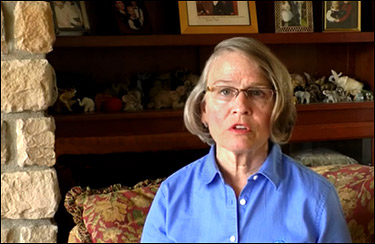By Jim Ellis
Dec. 4, 2020 — As things officially stand, Rita Hart, the Democratic nominee in the open IA-2 congressional district that occupies the southeastern part of the state, has lost to state Sen. Mariannette Miller-Meeks (R-Ottumwa) by a grand total of six votes from more than 393,000 ballots cast, but the challenge process from the Democrat is apparently not over.Though the state has certified the race, Hart is reportedly preparing to take the results directly to the US House of Representatives, asking the House Administration Committee to investigate the counting process. Ultimately, the House itself has the power to seat all of its members.
Normally, any individual possessing a duly authorized certificate of election from the state’s official election administrator, usually the Secretary of State, is seated. There is precedence, however, for denying duly elected candidates their seats.
Under Iowa election law and procedure, Hart had another way to challenge the results. Her campaign staff claims that certain ballots were not counted in the original or recount process, and there are enough, they say, to flip the final outcome in Hart’s direction.
In Iowa, such a disputed election goes to a judicial panel over which the state Supreme Court Chief Justice presides. In addition to the Chief Justice, the high court then chooses four other judges from around the state to comprise the special panel. In this case, the judges would have had to declare an official winner by Dec. 8 in order to comply with Iowa law. The Hart campaign contended that was not adequate time to consider the ballot challenges, so they opted to petition the House itself.
Rep. Zoe Lofrgen (D-CA) chairs the House Administration Committee, which includes five additional Democrats, two more from California, and three Republicans. The other members are: Reps. Jamie Raskin (D-MD), Susan Davis (D-CA), G.K. Butterfield (D-NC), Marcia Fudge (D-OH), and Pete Aguilar (D-CA). The Republicans are Ranking Minority Member Rodney Davis (R-IL) and Reps. Mark Walker (R-NC), and Barry Loudermilk (R-GA).


 Nov. 20, 2019 — If it seems like the North Carolina redistricting process has dragged on for the entire decade, then your senses are correct, because it has. After seeing a mid-decade re-draw before the 2016 elections, another set of lines will be in place for 2020, and then another plan for the ensuing electoral decade beginning in 2022 will be enacted during the regular decennial process. North Carolina is a sure bet to gain a new congressional seat in 2020 reapportionment.
Nov. 20, 2019 — If it seems like the North Carolina redistricting process has dragged on for the entire decade, then your senses are correct, because it has. After seeing a mid-decade re-draw before the 2016 elections, another set of lines will be in place for 2020, and then another plan for the ensuing electoral decade beginning in 2022 will be enacted during the regular decennial process. North Carolina is a sure bet to gain a new congressional seat in 2020 reapportionment.